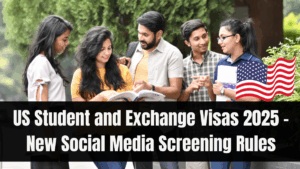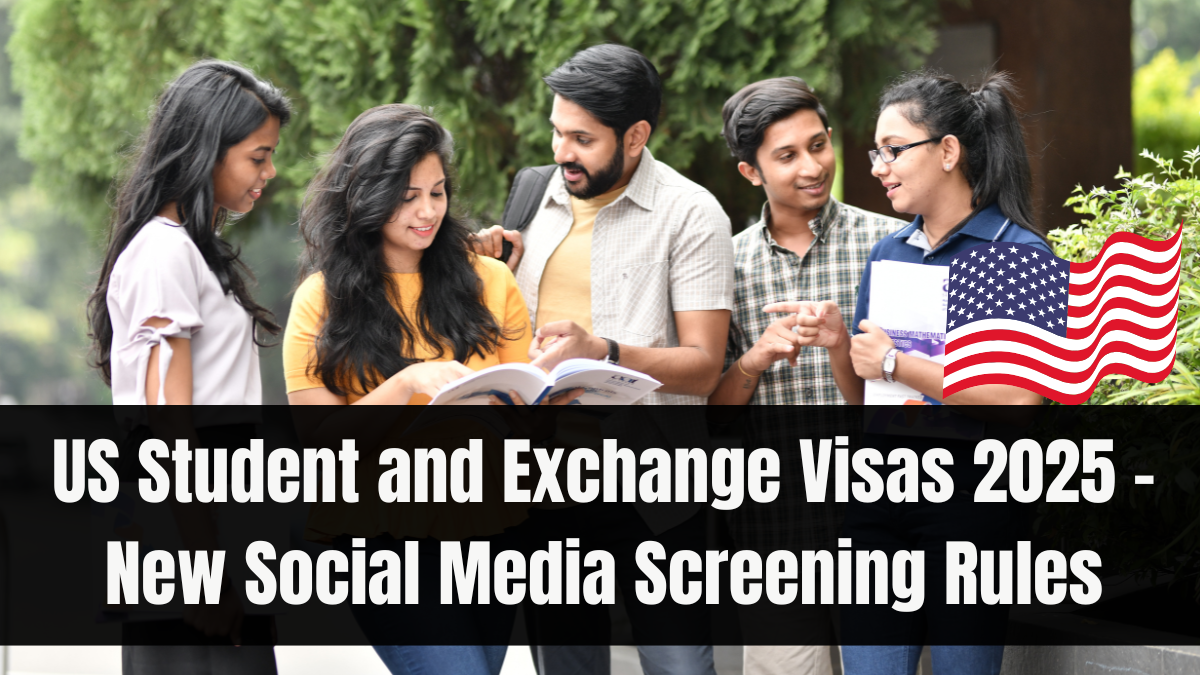The United States has implemented a major update to its visa screening protocols in 2025. As of June, all student and exchange visa applicants must now comply with the enhanced US Student Visa Social Media Rules. These new requirements are part of heightened security efforts by the US Department of State to better vet F, M, and J visa holders through their online presence. Students planning to study in the US must now prepare not only academic documents—but also their digital footprint.

What Are the New Social Media Rules?
Under the updated DS-160 and DS-260 forms, applicants must disclose all social media handles used over the past 5 years across platforms such as:
-
Facebook
-
Instagram
-
Twitter (X)
-
LinkedIn
-
TikTok
-
YouTube
-
Reddit and others
This applies to F-1, M-1, and J-1 visas, including academic, vocational, and exchange programs. The information collected will be used by consular officers to assess the applicant’s background and consistency with declared information.
Why Has This Rule Been Implemented?
The US Student Visa Social Media Rules aim to:
-
Strengthen visa security and prevent fraudulent admissions
-
Identify threats or red flags through online behaviour
-
Verify biographic and academic claims against online content
-
Support faster yet more accurate visa processing
These screenings are not intended to deny applicants for personal opinions but to ensure national security and data integrity.
How Does It Affect International Students?
International students applying for a US visa must now:
-
List all usernames used on social media within the past 5 years
-
Avoid deleting or hiding old posts during the visa process
-
Ensure that online profiles do not contradict information shared on visa applications
-
Be aware that officers may review public interactions, comments, and posts
Consular officials may request clarification if suspicious or inconsistent activity is found during screening.
Platforms and Information Under Scrutiny
Though exact algorithms remain confidential, it is known that automated systems check for:
-
Posts related to violence, extremism, or illegal activities
-
Discrepancies in location or education claims
-
Fraudulent acceptance letters or fake institutional links
-
False identities or duplicate profiles
The focus is primarily on public content, but any misleading omission can delay or impact the application.
What Applicants Should Do to Prepare
To successfully navigate the US Student Visa Social Media Rules, students are advised to:
-
Audit their social media profiles for accuracy and professionalism
-
Ensure names, dates, and education details match official records
-
Remove offensive or controversial posts if they conflict with visa eligibility
-
Use the same email address throughout DS-160 and SEVIS applications
-
Avoid sharing private login details—only handles/usernames are required
FAQs
Which visas are affected by the new social media rule?
The rule applies to F-1, M-1, and J-1 visa categories, covering most student and exchange visitor programs.
Will private accounts also be reviewed?
No. Only public-facing information is accessed. Applicants are not asked for passwords or private messages.
What happens if I don’t provide social media details?
Failure to disclose may lead to application delays or rejection due to incomplete information.
Can I delete old posts before applying?
While not illegal, deleting content to avoid scrutiny may raise red flags if found during automated analysis.
Are these checks done for renewals too?
Yes. Renewals and extensions of F/M/J visas may also require updated DS-160 forms with social media history.
Click here to know more.
